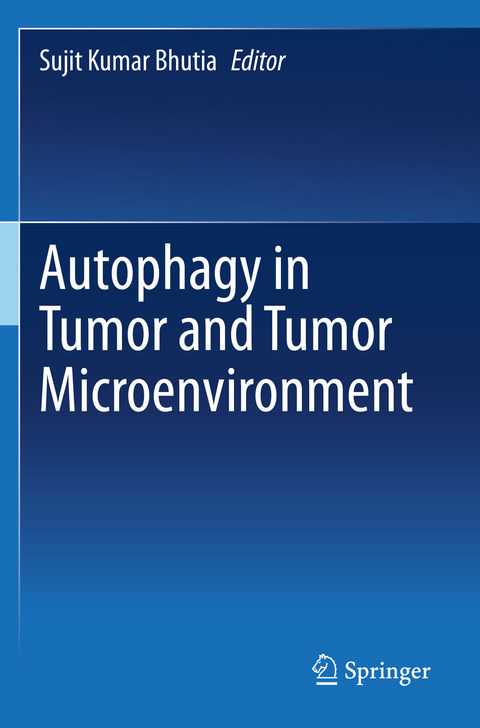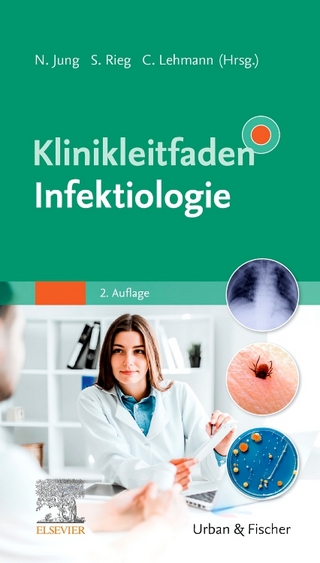
Autophagy in tumor and tumor microenvironment
Springer Verlag, Singapore
978-981-15-6932-6 (ISBN)
The book elucidates the physiological role of autophagy in modulating cancer metastasis, which is the primary cause of cancer-associated mortality. Further, it reviews its role in the differentiation, development, and activation of multiple immune cells, and its potential applications in tumor immunotherapy. In addition, it examines the effect of epigenetic modifications of autophagy-associated genes in regulating tumor growth and therapeutic response and summarizes autophagy’s role in the development of resistance to a variety of anti-cancer drugs in cancer cells. In closing, it assesses autophagy as a potential therapeutic target for cancer treatment. Given its scope, the book offers avaluable asset for all oncologists and researchers who wish to understand the potential role of autophagy in tumor biology.
Sujit Kumar Bhutia is currently working as an Associate Professor at the Department of Life Science, National Institute of Technology in Rourkela, India. He received his doctorate in cell biology and cancer from the Indian Institute of Technology, Kharagpur, India in 2008, and subsequently pursued post-doctoral research on autophagy and cancer at Virginia Commonwealth University, USA. His research interests are focused on understanding the role of autophagy and autophagy-dependent cell death in cancer for the development of novel therapeutics. He has published more than 80 research articles in international peer-reviewed journals and authored or co-authored numerous books and book chapters. He is also serving as a referee for several international journals. Prof. Bhutia has more than 10 years of teaching experience in the areas of cell biology, cell signaling, cancer biology, and cell death.
Chapter 1. Role of xenobiotic in autophagy inflection in cell death and carcinogenesis.- Chapter 2. Autophagy – An agonist and antagonist with an interlink of apoptosis in cancer.- Chapter 3. Cross-talk between DNA damage and autophagy and its implication in cancer therapy.- Chapter 4. miRNAs and its regulatory role on autophagy in tumor microenvironment.- Chapter 5. Exploring the metabolic implications of autophagy modulation in tumor microenvironment.- Chapter 6. Mitophagy and Reverse Warburg Effect: Metabolic Compartmentalization of Tumor Microenvironment.- Chapter 7. Mitochondrial Biogenesis, Mitophagy, and Mitophagic cell death in Cancer Regulation: A Comprehensive Review.- Chapter 8. Mechanical stress-induced autophagy: a key player in cancer metastasis.- Chapter 9. The Interplay of Autophagy and the Immune system in the Tumor Microenvironment.- Chapter 10. Relevance of autophagy in cancer stem cell and therapeutic.- Chapter11. The Autophagy Conundrum in Cancer Development, Progression and Therapeutics.- Chapter 12. Targeting Autophagy in Cancer: Therapeutic implications.- Chapter 13. Mechanistic insights into Autophagosome-Lysosome Fusion in Cancer Therapeutics.
| Erscheinungsdatum | 29.10.2021 |
|---|---|
| Zusatzinfo | 37 Illustrations, color; 1 Illustrations, black and white; VII, 280 p. 38 illus., 37 illus. in color. |
| Verlagsort | Singapore |
| Sprache | englisch |
| Maße | 155 x 235 mm |
| Themenwelt | Medizin / Pharmazie ► Medizinische Fachgebiete ► Mikrobiologie / Infektologie / Reisemedizin |
| Medizin / Pharmazie ► Medizinische Fachgebiete ► Onkologie | |
| Medizin / Pharmazie ► Medizinische Fachgebiete ► Pharmakologie / Pharmakotherapie | |
| Studium ► Querschnittsbereiche ► Infektiologie / Immunologie | |
| Schlagworte | angiogenesis • autophagy • Cancer • drug resistance • Stem Cell |
| ISBN-10 | 981-15-6932-0 / 9811569320 |
| ISBN-13 | 978-981-15-6932-6 / 9789811569326 |
| Zustand | Neuware |
| Informationen gemäß Produktsicherheitsverordnung (GPSR) | |
| Haben Sie eine Frage zum Produkt? |
aus dem Bereich


